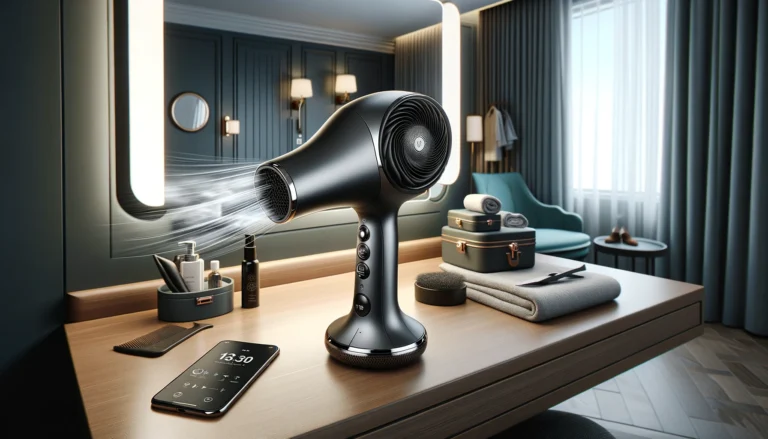Best Mic for Recording Vocals: Top Picks and Buying Guide
Recording vocals is an essential part of music production, and having the right microphone can make all the difference. A good microphone should capture the nuances of the singer’s voice while minimizing background noise and distortion. In this article, we will be exploring the best microphones for recording vocals.
When it comes to recording vocals, there are two main types of microphones: condenser and dynamic. Condenser microphones are more sensitive and capture a wider range of frequencies, making them ideal for capturing the subtleties of a singer’s voice. Dynamic microphones, on the other hand, are more rugged and can handle higher sound pressure levels, making them better suited for live performances.
One critical factor to consider when choosing a microphone is the polar pattern, which refers to the directionality of the microphone. The most common polar patterns for vocal microphones are cardioid and supercardioid. Cardioid microphones pick up sound from the front and reject sounds from the sides and rear, making them ideal for recording in a noisy environment. Supercardioid microphones have a narrower pickup pattern, making them ideal for isolating the singer’s voice in a studio setting.
After researching and testing several microphones, we have identified the top five microphones for recording vocals. These microphones offer excellent sound quality, durability, and versatility, making them suitable for both professional and amateur musicians.
Best Mics for Recording Vocals
We understand that finding the perfect microphone for recording vocals can be a daunting task, especially for beginners. With so many options on the market, it can be overwhelming to determine which mic will give you the best sound quality for your budget. That’s why we’ve compiled a list of the best mics for recording vocals to help make your decision easier. Our team of experts has tested and reviewed various mics to provide you with a comprehensive list of options that will suit your needs, whether you’re a professional musician or a podcaster. So, without further ado, here are our top picks for the best mics for recording vocals.
1) MAONO USB/XLR Podcast Dynamic Microphone
If you’re looking for a versatile microphone that can handle podcasting, recording, live streaming, vocal, voiceover, singing, and home-Studio, the MAONO HD300T dynamic microphone is a great choice. With a 4.4 rating and over 1,145 reviews, this microphone is a popular option for those looking for a mic that can do it all.
PROS
CONS
Overall, the MAONO HD300T dynamic microphone is a great option for those who need a versatile microphone that can handle a variety of recording needs. With its durable metal construction and included shock mount and pop filter, this microphone is a great value for the price.
2) TONOR USB Microphone
If you’re looking for a budget-friendly USB microphone, the TONOR TC-777 is a great option. It has a cardioid pickup pattern that captures clear sound in front of the microphone while suppressing unwanted background noise. The microphone is versatile and can be used for streaming, podcasting, and vocal recording on your laptop or desktop.
PROS
CONS
We were impressed with the TONOR TC-777’s ease of use and versatility. The plug-and-play design made it easy to set up and start using right away, and the included pop filter and tripod were a nice touch. While the microphone’s sound quality may not be as high as more expensive options, it’s a great choice for those on a budget or just starting out in the world of streaming and podcasting. Overall, we recommend the TONOR TC-777 as a solid choice for a budget-friendly USB microphone.
3) MAONO USB Microphone
If you’re looking for an affordable and easy-to-use microphone for recording vocals, the MAONO USB Microphone is a great option.
PROS
CONS
We were impressed with the MAONO USB Microphone’s overall performance. The sound quality is clear and smooth, with a strong bass response provided by the 16mm electret condenser transducer. The microphone is easy to set up and use, and the sturdy boom arm set provides excellent stability during recording. However, some users have reported that the microphone can pick up too much background noise, which may be a concern for those recording in noisy environments. Additionally, the lack of a mute button may be inconvenient for some users. Overall, we recommend the MAONO USB Microphone for its affordability, ease of use, and solid performance.
4) MAONO USB/XLR Podcast Dynamic Microphone
If you’re looking for a versatile microphone that can handle a variety of recording scenarios, the MAONO USB/XLR Podcast Dynamic Microphone is definitely worth considering.
PROS
CONS
We found the MAONO USB/XLR Podcast Dynamic Microphone to be a solid performer in a variety of recording scenarios. The USB/XLR dual-mode output allows for flexibility in recording setups, and the built-in cardioid capsule does a great job of capturing sound in front of the microphone while reducing background noise.
The onboard headphone output with volume control allows for zero-latency monitoring, which is great for recording vocals or instruments. We also appreciate the included shock mount and pop filter, which help reduce unwanted noise and pops.
That being said, we did notice that the gain on the USB output can be soft and there is no knob to adjust it. Additionally, the pop filter may not stay securely in place on the shock mount, which could be frustrating for some users. Finally, while the microphone stand is adjustable, it may not be as sturdy as some users would like.
Overall, we think the MAONO USB/XLR Podcast Dynamic Microphone is a great option for those looking for a versatile microphone that can handle a variety of recording scenarios.
5) FIFINE Studio Condenser USB Microphone Computer PC Microphone Kit with Adjustable Boom Arm Stand Shock Mount for Instruments Voice Overs Recording Podcasting YouTube Vocal Gaming Streaming-T669 Black
If you are looking for an affordable USB microphone that provides excellent sound quality and comes with a durable arm set, the FIFINE Studio Condenser USB Microphone is a great option.
PROS
CONS
We were impressed with the FIFINE Studio Condenser USB Microphone’s sound quality and ease of use. The microphone’s adjustable boom studio scissor arm stand is made out of all steel construction, sturdy and durable, and the double pop filter removes the rush of air caused by vocal plosives, minimizing the popping sounds that can compromise your recording.
The microphone’s low-profile, table-hugging design allows on-air talent to perform without facial obstruction to record in podcasting or make dubbing sounds for videos, use voice chat in Discord or online conference on Zoom or Skype.
Overall, if you are looking for an affordable USB microphone that provides excellent sound quality and comes with a durable arm set, the FIFINE Studio Condenser USB Microphone is a great option.
6) Logitech for Creators Blue Yeti USB Microphone
If you’re looking for a versatile microphone that can handle a variety of recording needs, the Logitech for Creators Blue Yeti USB Microphone is a great option.
PROS
CONS
Overall, we found the Logitech for Creators Blue Yeti USB Microphone to be a reliable and versatile option for recording vocals. The custom three-capsule array produces clear, powerful sound, while the Blue VOICE software provides advanced vocal effects and modulation for a professional sound. The four pickup patterns offer flexibility, making it easy to record in a variety of situations. However, the microphone is quite large and heavy, which may make it less portable than some other options. Additionally, some users have reported issues with background noise and hissing sounds, so it may require some troubleshooting to get the best sound quality.
Buying Guide
When it comes to buying a microphone for recording vocals, there are a few important factors to consider. Here are some key features to look for when choosing the best mic for your needs:
Type of Microphone
There are several types of microphones available, each with their own advantages and disadvantages. The three most common types are dynamic, condenser, and ribbon microphones.
-
Dynamic microphones are rugged and versatile, making them a great choice for live performances and recording loud vocals.
-
Condenser microphones are more sensitive and detailed, making them ideal for capturing subtle nuances in vocals.
-
Ribbon microphones are known for their warm, natural sound, but they can be fragile and require careful handling.
Polar Pattern
The polar pattern of a microphone refers to the directionality of the mic’s sensitivity. There are several types of polar patterns, including cardioid, omnidirectional, and figure-8.
-
Cardioid microphones are the most common and are ideal for recording vocals, as they pick up sound from the front and reject sound from the sides and rear.
-
Omnidirectional microphones pick up sound from all directions, making them a good choice for recording groups or ambient sound.
-
Figure-8 microphones pick up sound from the front and back, but reject sound from the sides, making them useful for recording duets or interviews.
Frequency Response
The frequency response of a microphone refers to the range of frequencies that the mic can capture. A microphone with a flat frequency response will capture all frequencies equally, while a microphone with a tailored response will emphasize certain frequencies.
-
A flat frequency response is ideal for capturing natural, uncolored vocals.
-
A tailored frequency response can be useful for adding warmth or brightness to vocals, depending on the desired effect.
By considering these factors and choosing a microphone that meets your specific needs, you can ensure that you get the best possible sound for your vocal recordings.
Frequently Asked Questions
What are the top microphones recommended for beginners recording vocals?
For beginners, we recommend the Audio-Technica AT2020 or the Shure SM58. These microphones are affordable and offer good sound quality for vocal recordings.
How do budget microphones compare in quality for vocal recording?
Budget microphones can still offer decent quality for vocal recordings, but they may not have the same level of clarity and richness as higher-end microphones. However, if you’re just starting out and don’t want to invest too much money, a budget microphone can still get the job done.
Which microphones are favored by professional vocalists for studio recording?
Professional vocalists often use high-end condenser microphones such as the Neumann U87 or the AKG C414 for studio recordings. These microphones offer exceptional sound quality and are designed to capture every detail in a vocal performance.
What characteristics should I look for in a microphone for recording vocals at home?
When choosing a microphone for recording vocals at home, look for a microphone with a cardioid polar pattern, a frequency response that is tailored to vocals, and a low self-noise level. It’s also important to consider the microphone’s sensitivity and SPL handling capabilities to ensure it can handle loud vocal performances.
Can you use a phone microphone for quality vocal recordings, and what are the best options?
While phone microphones have improved in recent years, they still may not offer the same level of quality as a dedicated microphone. However, if you’re in a pinch, the Shure MV88 or the Rode VideoMic Me are both good options for recording vocals on your phone.
Should I choose a dynamic or condenser microphone for recording loud singing vocals?
For loud singing vocals, a dynamic microphone is typically a better choice as it can handle high sound pressure levels without distortion. The Shure SM7B and the Electro-Voice RE20 are both popular dynamic microphones for recording loud vocals.












